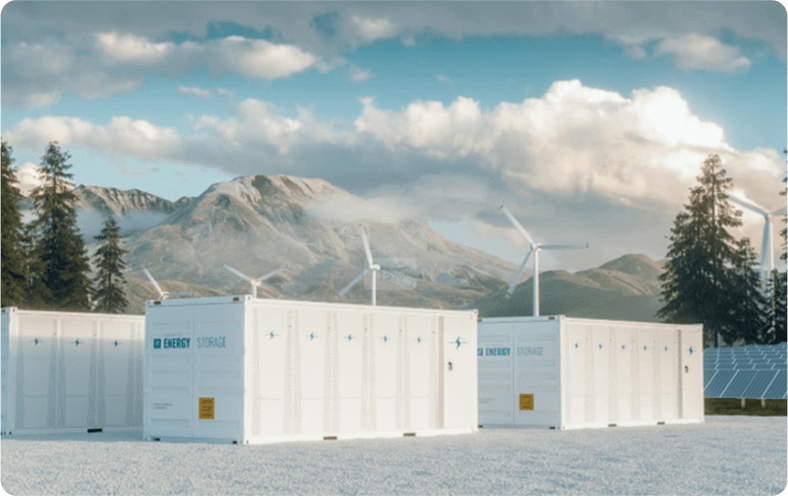Sep. 03, 2025
Recently, the SolarEast battery energy storage cabinet successfully passed the IEC62619,IEC62477,IEC61000 Series certification and became a electrochemical energy storage system that meets international standards. The IEC62619,IEC62477,IEC61000 Series certification is a core standard system recognized globally in the energy storage industry, covering strict requirements for energy storage systems in terms of safety, reliability, and performance. SolarEast battery energy storage cabinet certification this time indicates that the design, manufacturing and performance of its energy storage products have fully reached the industry’s excellent level, laying a solid foundation for providing more reliable and safe energy storage solutions to global customers.
IEC 62619 Certification
IEC 62619 is an international standard developed by the International Electrotechnical Commission (IEC) specifically for lithium-ion battery modules and systems used in industrial applications. It focuses on ensuring the safety, reliability, and performance of lithium-ion energy storage systems (ESS) that operate in non-automotive, industrial environments—such as stationary energy storage for power grids, renewable energy (solar/wind) supporting systems, and industrial backup power supplies.
The standard covers key technical requirements including:
Mechanical safety (resistance to vibration, impact, and drop)
Electrical safety (overcharge, over-discharge, short-circuit protection)
Thermal safety (temperature cycling, thermal runaway prevention)
Environmental adaptability (operation under extreme temperature, humidity, and altitude)
Performance durability (cycle life, capacity retention, and efficiency)
IEC 62477 Certification
IEC 62477 is a critical standard for power conversion equipment (PCE), which refers to devices that convert electrical energy between different forms (e.g., AC-DC rectifiers, DC-AC inverters, DC-DC converters). This standard is widely applied to power supplies for industrial equipment, renewable energy inverters, electric vehicle (EV) charging systems, and uninterruptible power supplies (UPS).
Its core requirements focus on:
Electrical performance (output voltage/current stability, efficiency, power factor)
Safety (isolation between input/output, protection against electric shock, overheating, and short circuits)
Electromagnetic compatibility (EMC) – limiting electromagnetic interference (EMI) emitted by the equipment and enhancing its immunity to external interference (EMS)
Environmental robustness (operation in harsh industrial conditions like dust, moisture, and temperature fluctuations)
IEC 61000 Certification
IEC 61000 is not a single standard but a series of international standards addressing electromagnetic compatibility (EMC) for all electrical and electronic equipment. It is one of the most widely adopted EMC standards globally, covering almost all industries (industrial, consumer electronics, automotive, medical, etc.).
The IEC 61000 series is divided into multiple parts based on functions and application scenarios, with key components including:
IEC 61000-4: Immunity testing (e.g., resistance to electrostatic discharge, radio frequency interference, voltage surges, and power frequency magnetic fields).
IEC 61000-6: EMC requirements for specific product categories (e.g., IEC 61000-6-1 for residential/commercial equipment, IEC 61000-6-2 for industrial equipment).
IEC 61000-3: Power quality requirements (e.g., limiting harmonic currents and voltage fluctuations to avoid impacting the public power grid).
The goal of IEC 61000 is to ensure that electrical/electronic devices can operate normally in their electromagnetic environment without causing unacceptable interference to other devices.
Compliance with Market Access Requirements
Most countries and regions (e.g., EU, North America, Japan, China) mandate that electrical/electronic products meet relevant IEC standards (or their national equivalents, such as EN 62619 in the EU, which is identical to IEC 62619) before entering the market. For example:
Products sold in the EU must comply with IEC 61000 (EMC) to obtain the CE mark, a prerequisite for customs clearance and sales.
Industrial lithium-ion energy storage systems exported to Southeast Asia or Africa often require IEC 62619 certification to prove compliance with international safety norms.
Ensuring Product Safety and Reliability
IEC 62619 prevents safety hazards in lithium-ion energy storage systems (e.g., thermal runaway, fire, or explosion) caused by design flaws, ensuring safe operation in industrial scenarios.
IEC 62477 guarantees that power conversion equipment avoids electrical accidents (e.g., electric shock, short-circuit fires) and maintains stable performance, preventing production downtime in industrial plants due to power supply failures.
IEC 61000 eliminates malfunctions or damage to equipment caused by electromagnetic interference (e.g., a factory’s control system crashing due to interference from nearby inverters) and avoids interference with public infrastructure like power grids or communication networks.
Summary
These certifications cover multiple aspects such as electrical safety, mechanical safety, thermal safety, electromagnetic compatibility, environmental friendliness, and wireless communication compliance, ensuring that battery energy storage systems meet the strict requirements of the European market. By obtaining these certifications, SolarEast Energy Storage System can prove the high safety and reliability of their products and smoothly enter the European market.
Related Solutions
Utility Scale Energy Storage Solutions
+ -Optimize Energy Efficiency. Cut Costs. Embrace Sustainability. SolarEast Battery Energy Storage Systems provides customized BESS solutions for industrial parks, farm energy storage solutions, and C&I Energy Storage System to reduce peak demand charges, stabilize power supply, and enable smart energy management. Our industrial and commercial energy storage systems cover a full range of products from 30kWh to 5MWh, including small integrated energy storage devices and large customized energy storage solutions, which are widely used in microgrids, off-grid power supply, peak cutting and valley filling, demand side management and backup power.
Residential Energy Storage System Solutions
+ -SolarEast's residential energy storage system, designed for homes, villas, sunrooms, and communities, stores solar energy to reduce power bills and ensure reliable day-and-night energy use.
Commercial & Industrial Storage System Solutions
+ -SolarEast BESS is a supplier of lithium iron phosphate batteries, microgrid energy, large-scale battery storage, grid-scale energy storage, high-voltage energy storage batteries, and energy storage solutions. SolarEast solar batteries and solutions are recognized and welcomed by customers worldwide. Our targets are focused on the following markets: industrial and commercial energy storage systems, Telecom Energy Storage Systems (TESS), transportation/utility energy storage, and large/medium/small backup power systems.


